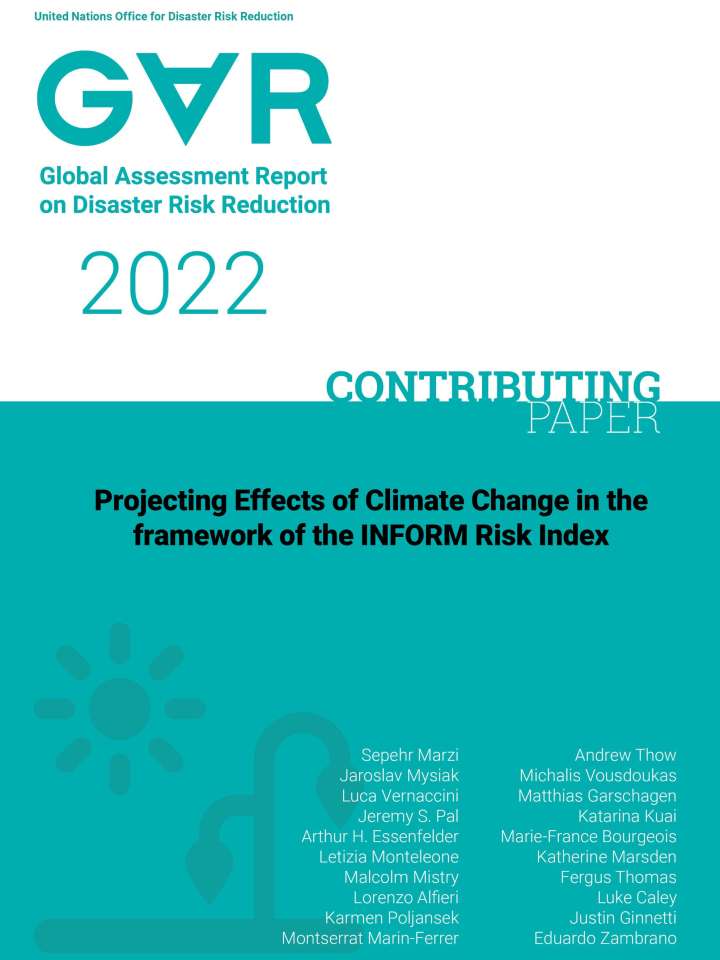Projecting effects of climate change in the framework of the INFORM Risk Index
This contributing paper presents an extension of the INFORM Risk Index, a global indicator-based disaster risk assessment tool, using projections of exposure to climate change hazards to provide better insights for policymakers on the threats imposed by climate change and the extent the amplified risks can be compensated by reduced vulnerability and increased adaptive capacity measures. The study considers the RCP 8.5 high greenhouse gas concentration scenario and the SSP3 population projection for the mid-21st century.
The projections find that largest mid-century changes in climate hazard and exposure are observed in much of Europe, northern and southern Africa, South America, and western and southwestern Asia. To compensate for the increase of climate-related hazards, the countries and regions will need to invest in reducing vulnerability and increasing coping capacity. This knowledge can benefit humanitarian aid management planning and in forming effective disaster risk reduction and climate change adaptation strategies and plans.
